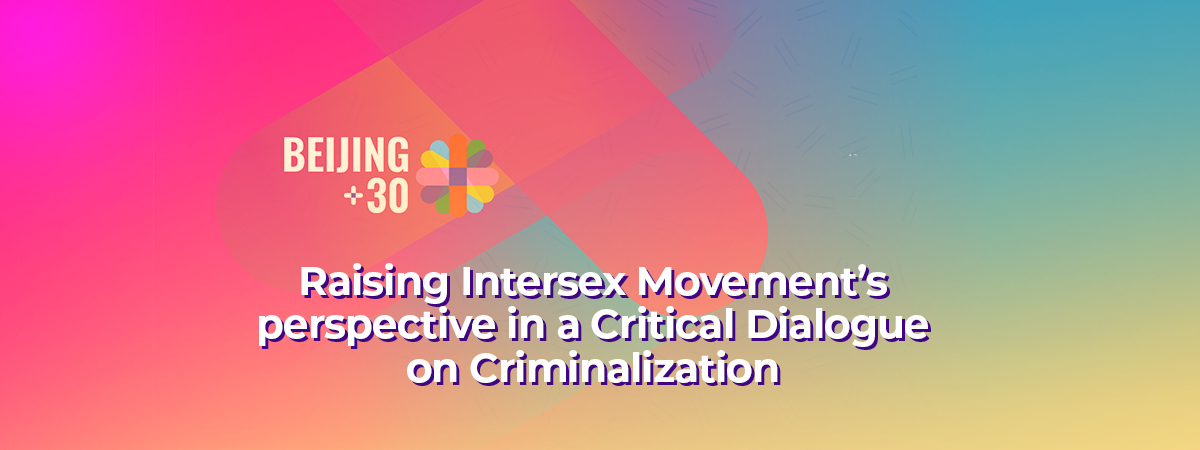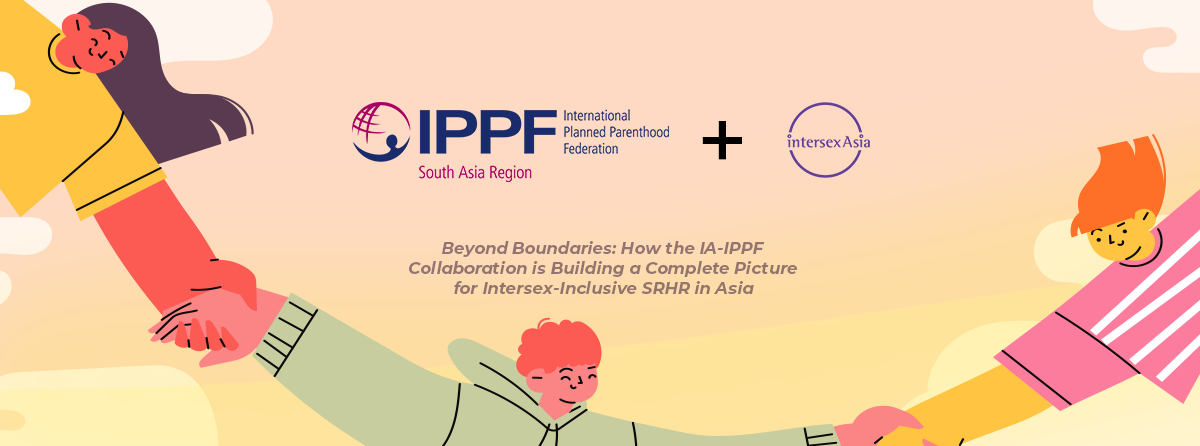As the global community marks the 30th anniversary of the landmark Beijing Declaration and Platform for Action, Intersex Asia co-organised a crucial parallel event during the 69th session of the Commission on the Status of Women (CSW69). This significant gathering, titled “Seeking just futures: Reflecting on criminalization and the gender justice agenda at Beijing+30,” took place on Tuesday, March 18th, 2025, from 8:30 AM to 10:00 AM at UN Plaza in New York. This event is co-organized by Just Futures Collaborative, Association for Progressive Communications, and Noor, highlighting the cross-movement solidarity. The invited speakers included Esan Regmi- Intersex Asia’s Chair and Executive Director, Campaign for Change Nepal. While Esan was originally planning to travel in person for this event, we had to opt for virtual participation due to recent funding cuts.
Thirty years of The Beijing Declaration
The Beijing Declaration called for various measures, including “criminal and civil measures,” to combat violence against women. Thirty years later, it is imperative for all movements striving for justice – be it gender, economic, climate, or social justice – to critically examine our historical engagement with systems of criminalization. While the pursuit of justice has often involved advocating for legal protection and punitive measures against rights violations, we now recognize that these very systems can be detrimental to the marginalized communities we seek to protect. Criminalization has frequently led to increased policing, surveillance, and punishment of these groups, including activists, without effectively preventing or reducing violence.
For the intersex movement, this reflection on criminalization is particularly pertinent. As Esan Regmi, Chair of Intersex Asia, articulated in his remarks, the intersex rights movement globally employs a multifaceted approach, utilizing both legal protections, including measures that can be considered a form of criminalization, and strategically pursuing alternative approaches. Our primary focus has been to address the historical and ongoing human rights violations experienced by intersex people, especially the non-consensual medical interventions performed to align our bodies with binary sex norms.
A central demand of the global intersex community is for legal prohibitions against non-consensual medical interventions on intersex minors. These “sex-normalizing” treatments violate our fundamental rights to bodily integrity, autonomy, and self-determination. We have actively advocated for national legislation that explicitly bans these harmful practices without our free, prior, and fully informed consent. To date, only a handful of countries have enacted such laws with varying degrees of prohibition, some including penal provisions.
However, as Esan highlighted, legal bans and prohibitions alone are insufficient to guarantee our well-being and rights. These measures must be complemented by a broader range of strategies that address the root causes of discrimination. In our context, this includes a significant focus on the development of intersex-affirming protocols and standards of care within the medical field. We advocate for healthcare that prioritizes individual autonomy and well-being, emphasizing multidisciplinary support and psychosocial environments that affirm intersex identities. We firmly believe that medical professionals can be key allies in this journey, as demonstrated by the positive collaboration seen in Greece, which resulted in progressive legislation. In our view, the need for criminalization becomes less important if there are medical protocols based on human rights principles and developed in close consultation with intersex organizations. Such an approach can shift the medical community’s focus towards respect for bodily diversity without solely relying on criminal sanctions.
The movement beyond
Beyond the medical sphere, our movement places significant emphasis on raising awareness and combating stigma and discrimination through education and public outreach. Legal protections are most effective when coupled with societal understanding and acceptance. In his speech, Esan highlighted the example of a Chicago hospital pledging to stop performing medically unnecessary surgeries on children born with intersex traits following public information campaigns. Such examples illustrate the power of awareness in driving positive change without necessarily involving criminal penalties.
While we have seen some successes in achieving legal protections, including bans in certain countries, challenges persist in implementation, enforcement, and addressing loopholes. This underscores the limitation of relying solely on prohibitions. Therefore, the strength of the intersex rights movement lies in the parallel pursuit of alternatives such as intersex-affirming medical protocols, awareness campaigns, psychosocial support, and data collection.
Our parallel event at CSW69 offered a crucial platform to delve deeper into these complexities. It featured a diverse panel of activists and organizers, including Esan Regmi, who shared lessons learned from the intersex movement about regulating and preventing forced, medically unnecessary infant intersex surgery through legal and policy change, including the nuances of bans and criminal prosecution of medical professionals. This session provided an opportunity to reflect on how we have relied on legal protections, but also seek alternatives to ensure our rights, and to critically assess the effectiveness and limitations of bans and prohibitions.
For Intersex Asia and the broader intersex community, this parallel event represented a vital opportunity to ensure our voices are heard at a critical juncture. By participating in this dialogue, we aimed to contribute to a broader feminist and human rights movement that critically examines the role of criminalization in achieving justice. As we reflect on the progress and challenges since the Beijing Declaration, we are committed to advocating for legal and social change that truly protects the rights and dignity of intersex individuals, recognizing that true justice requires a multifaceted approach that extends beyond the limitations of criminalization alone.




